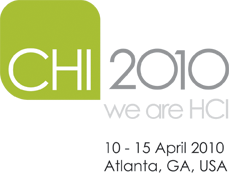CN09: Well, We’ve Done All This Research, Now What?
Quick Facts
Time: Tuesday, 13 April 2010, 9:00 to 13:00Units: 2
Organizers: Steve Portigal
Benefits
One of the most persistent factors limiting the impact of user research in business is that projects often stop with a cataloging findings and implications rather than generating opportunities that directly enable the findings. As designers increasingly become involved in using contextual research to inform their design work, they may find themselves holding onto a trove of raw data but with little awareness of how to turn it into design. How can designers and researchers work with user research data to create new things for business to do?
The emphasis in this course will be on strengthening the creative link between "data" and "action." By the end of the course, participants will have developed a range of high-level concepts that respond to a business problem and integrate a fresh, contextual understanding of that problem.
Audience
This course is appropriate for anyone interested in learning more about using field data to help businesses solve problems. For designers and other practitioners new to the connections between the two, this would be a great introduction, while more seasoned attendees will benefit from the opportunity to step back from their own (often implicit) process and reflect.Origins
The course is based on a process used in Portigal Consulting client engagements. It was taught at a sold-out workshop at Interaction’09, and has been presented at BayCHI, IXDA-SF, EPIC2009 (Ethnographic Praxis in Industry Conference) and Web 2.0. Over the range of venues and audiences, we’ve received valuable feedback that has helped to refine and evolve the course contentsFeatures
Participants in this course will:- Collaborate in teams to experience an effective framework for synthesizing raw field data
- Learn how to move from data to insights to opportunities
- Experience techniques for generating ideas and strategies across a broad scope of business and design concerns



